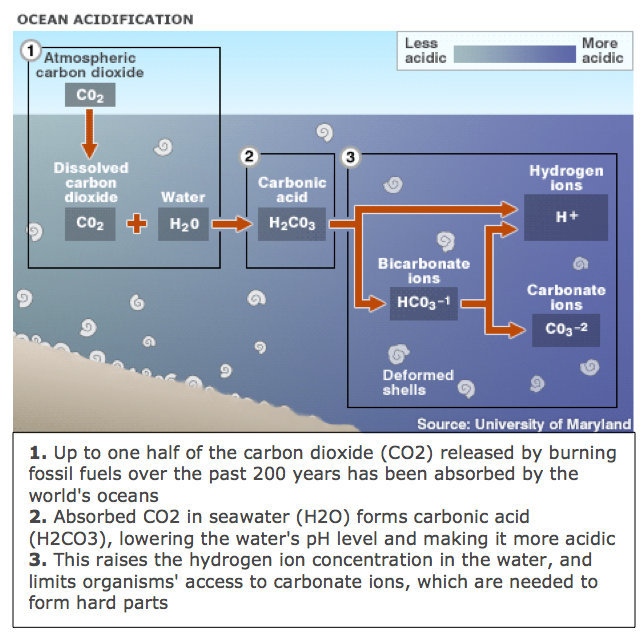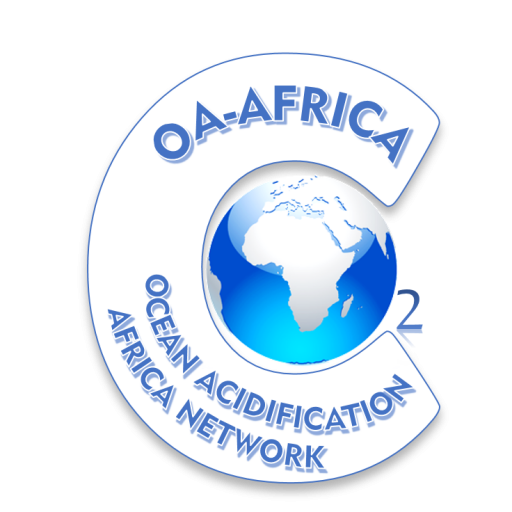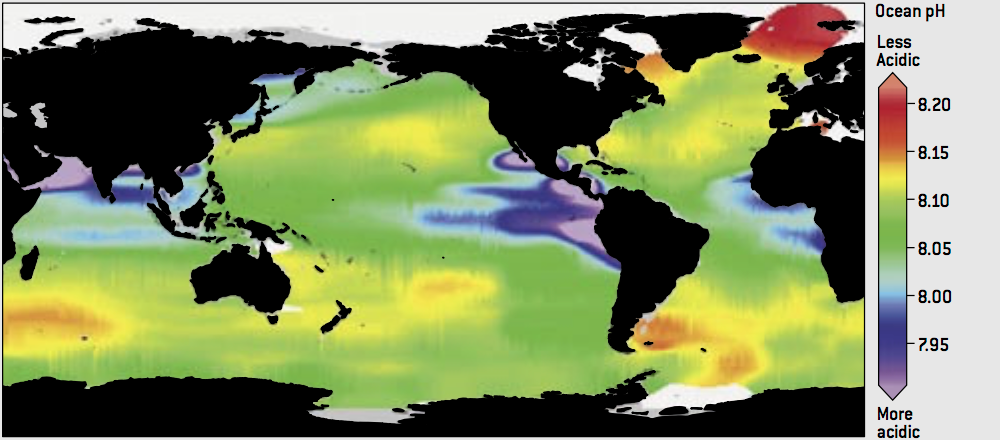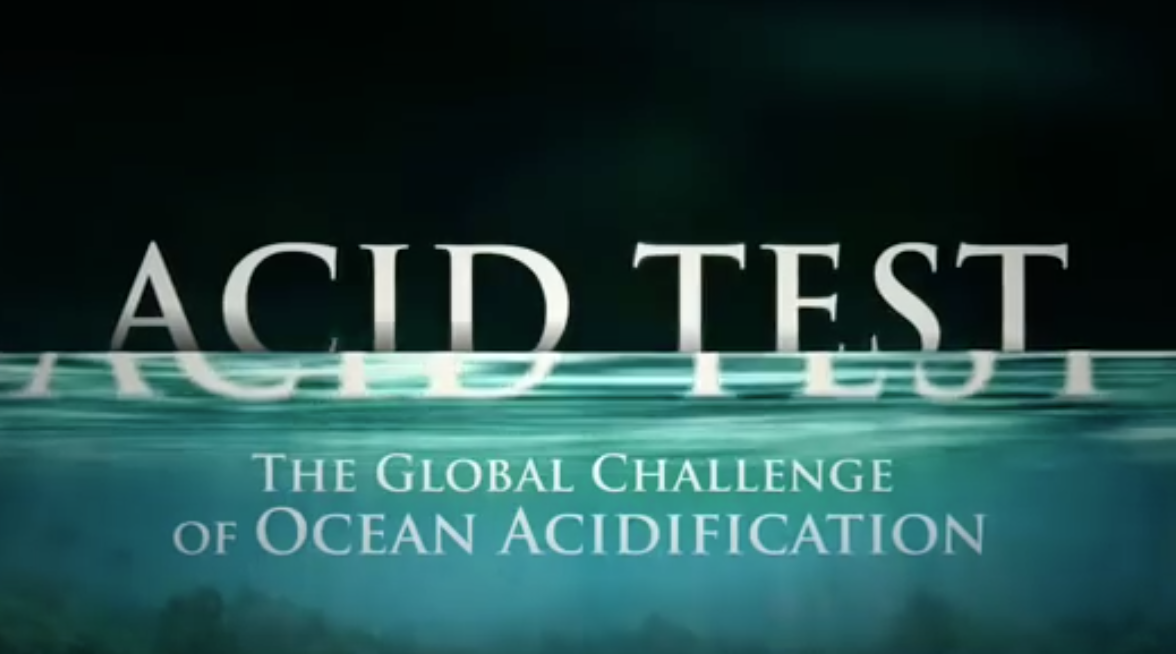About Ocean Acidification
Ocean acidification is a term used to describe the changes in the chemistry of the world’s seas, primarily as a result of burning fossil fuels.
The Earth’s carbon cycle, the exchange of carbon dioxide (CO2) between land, sea and air, is generally meant to be in equilibrium. Since the Industrial Revolution, there has been a sharp increase in atmospheric CO2 because of human activity, primarily from burning fossil fuels. But not all the unlocked CO2 remains in the atmosphere. Up to 50% of the emissions are absorbed by the ocean
The CO2 in the water, which leads to the formation of carbonic acid, has caused the pH of surface oceans to fall by 0.1 units, and it is projected to fall a further 0.3-0.4 pH units by the end of the century. The shift in the waters’ chemical make-up not only increases its acidity, but reduces the availability of carbonate ions, which many creatures use to build shells and skeletons out of calcium carbonate.
Read more about Variation in pH levels across the world's oceans
Watch the award winning film: The Acid Test

Commercial and recreational fishing, tourism, the protection of shorelines by carbonate reefs—all could be harmed by ocean acidification that is already well under way. Not to mention the hard-to-quantify-but-significant cultural and lifestyle changes that communities will have to make to adapt to changing marine ecosystems. In other words, ocean acidification is not just a problem for marine life. It has the potential to change the way humans feed themselves, earn their livings, run their communities, and live their lives.
Livelihood impacts
Small scale fisheries of small pelagics (sardines, anchovies and herring) and some large scale fisheries for demersal (hake), large pelagic (tuna) and small pelagic fish are found in all sub-regions of the Central and South Atlantic. These fish stocks are important both commercially and for subsistence. In addition, the western Atlantic has major shellfish aquaculture activities, largescale in the United States and artisanal in Brazil, which may be sensitive to ocean acidification. The sensitivity of open ocean finfish fisheries to ocean acidification via physiological or food-web effects is not yet known, but is of concern for coastal western and southern Africa
Coral reef areas can also be negatively impacted by ocean acidification. Alteration of the reefs will change fish populations and regional productivity, as well as exacerbating coastal erosion drivers. Impacts that decrease harvests by small scale fisheries have the potential to reduce food security and worsen food distribution inequalities that already exist in the region.


